Vietnamese digital technology enterprises have made great strides in development.
On the morning of June 14, in Hanoi, a workshop on “Improving smart manufacturing capacity and developing the digital technology industry towards Make in Vietnam” took place. This is one of four workshops within the framework of the 2023 Industry 4.0 Summit, chaired by the Central Economic Commission.

Speaking at the workshop, emphasizing the importance of Resolution 29 of 2022 on "continuing to promote industrialization and modernization of the country by 2030, with a vision to 2045", Deputy Head of the Central Economic Commission Nguyen Hong Son said that Resolution 29 has identified the digital technology industry as one of the 6 fundamental industries, in which smart manufacturing on the 5G network platform is the core of the digital technology industry.
Pointing out data from research by international organizations and businesses, the representative of the Central Economic Committee also pointed out that developing smart manufacturing in Vietnam is facing many intertwined opportunities, difficulties and challenges.
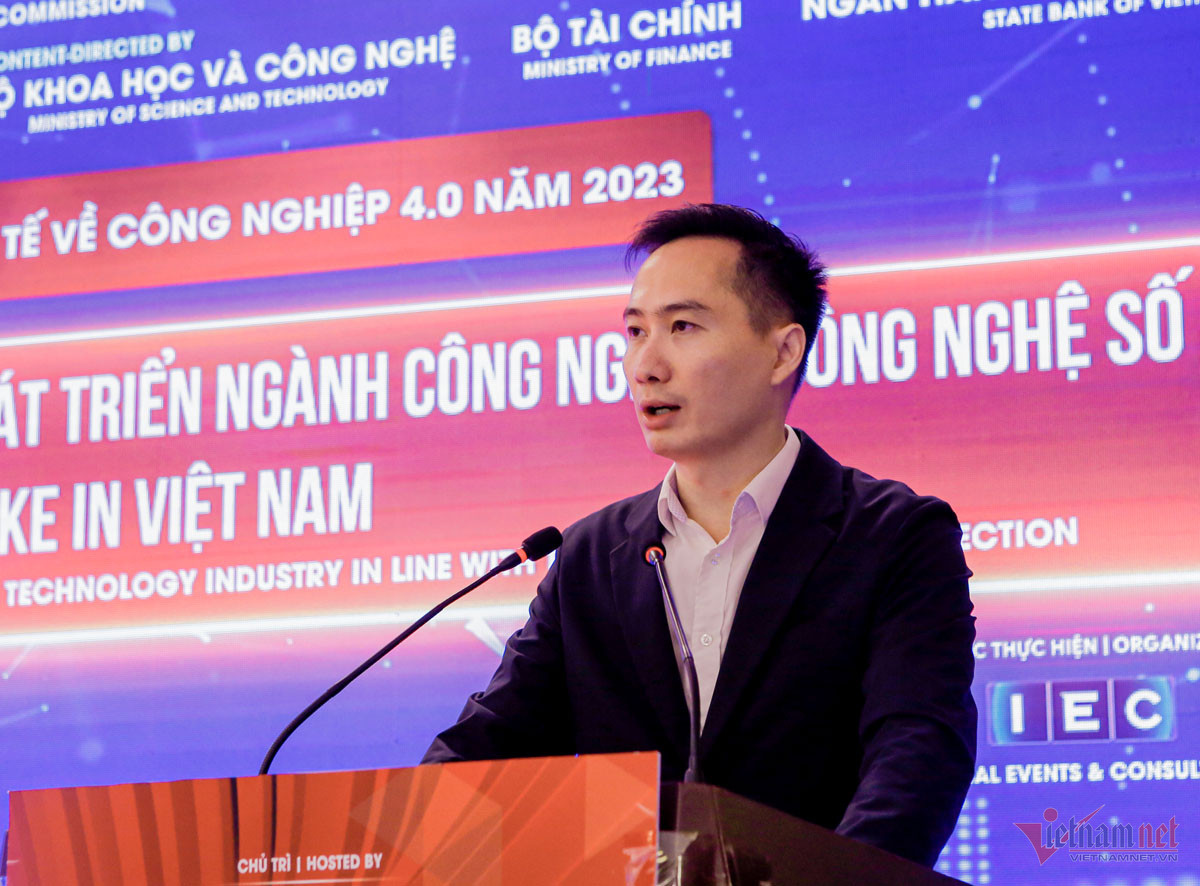
Mr. Nguyen Thien Nghia, Deputy Director in charge of the Department of Information Technology and Communications Industry (ICT), Ministry of Information and Communications, said that industrialization is a long process and requires perseverance. Experience from Asian countries that have succeeded in developing the ICT industry shows that the industrial development process basically consists of 3 stages: The assembly stage will take advantage of abundant labor, uneven skills but competitive costs; the integrated product stage, gradually participating in the supply chain, production management and process optimization; the product stage, self-sufficient in some core technologies.
With the above 3 processes, according to Mr. Nguyen Thien Nghia, Vietnam is in the stage of processing and assembling and starting to make integrated products. Smart manufacturing will play a very important role in helping Vietnamese businesses automate processes, optimize production costs and quickly bring products to users.
Over the past 3 years, Vietnam's ICT industry has witnessed the flourishing development of domestic enterprises. Enterprises such as Viettel Manufacturing, VNPT Technology, Trung Nam EMS... have had smart manufacturing activities, provided smart manufacturing services and gradually made integrated products. "We highly appreciate Vietnamese enterprises that have proactively identified suitable markets and segments and have made systematic and long-term technology investments," Mr. Nguyen Thien Nghia emphasized.
How to develop Vietnam's digital technology industry quickly and sustainably?
Also in the discussion at the workshop, citing the example of Toyota taking 34 years and Hyundai taking 28 years to be able to produce and master automobile engine technology, Deputy Director in charge of the Department of ICT Industry Nguyen Thien Nghia said that Vietnamese enterprises wanting to invest to master production and technology will also need appropriate support policies.
“To accompany and help Vietnamese enterprises gradually improve their level, the Ministry of Information and Communications hopes to receive support from the Central Economic Committee in advising and proposing a number of policies to support enterprises to operate more effectively,” Mr. Nguyen Thien Nghia shared.
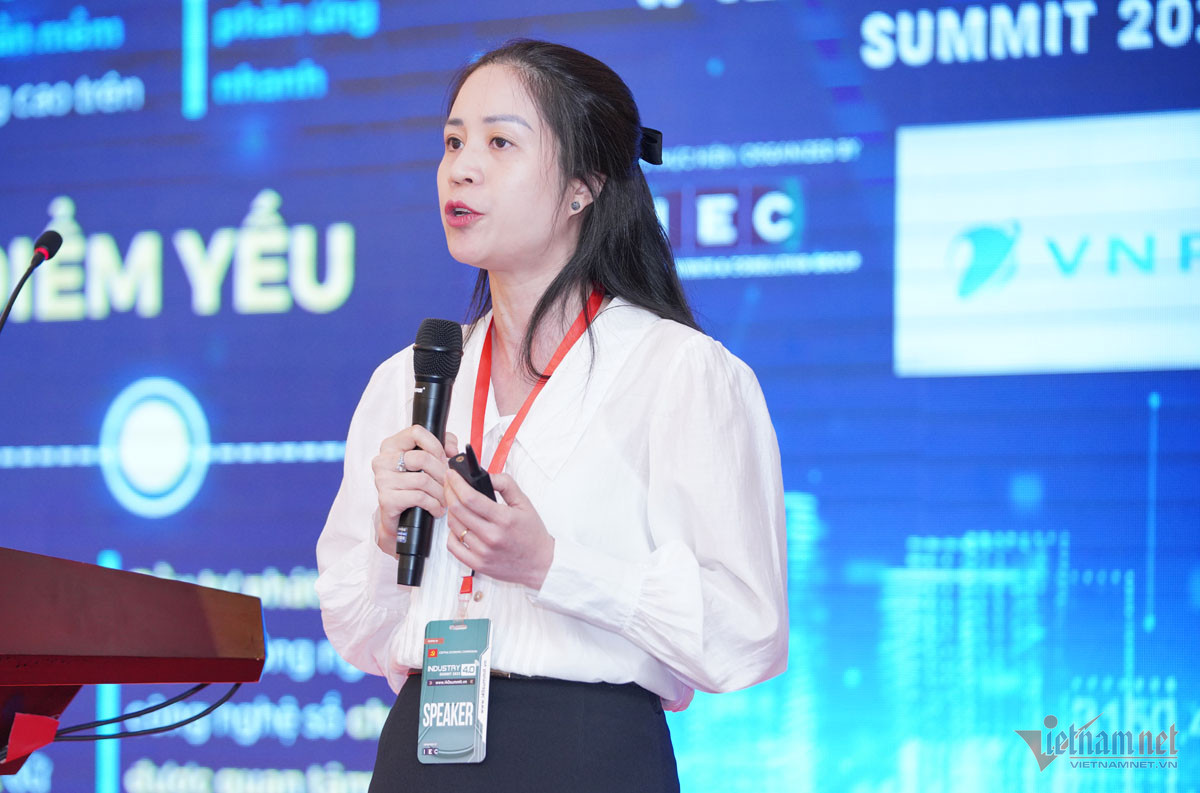
Sharing VNPT's viewpoint, Ms. Phan Thi Thanh Ngoc, digital transformation consultant of VNPT-IT, said that to develop Vietnam's digital technology industry quickly and sustainably, there needs to be a combination of self-reliance and international cooperation, between a strong state and a strong market.
Along with that, it is necessary to focus on the core values of digital technology, which are business, quality and human resources. Specifically, digital technology businesses must be the center, taking quality and the Make in Vietnam brand as the foundation, and talented human resources must be considered the key factor.
VNPT-IT representatives made five proposals on policies for developing Vietnam's digital technology industry, including preferential policies for businesses and policies to control the quality of Make in Vietnam digital technology products and services; promote and boost demand; attract FDI capital; and train and develop digital technology human resources.
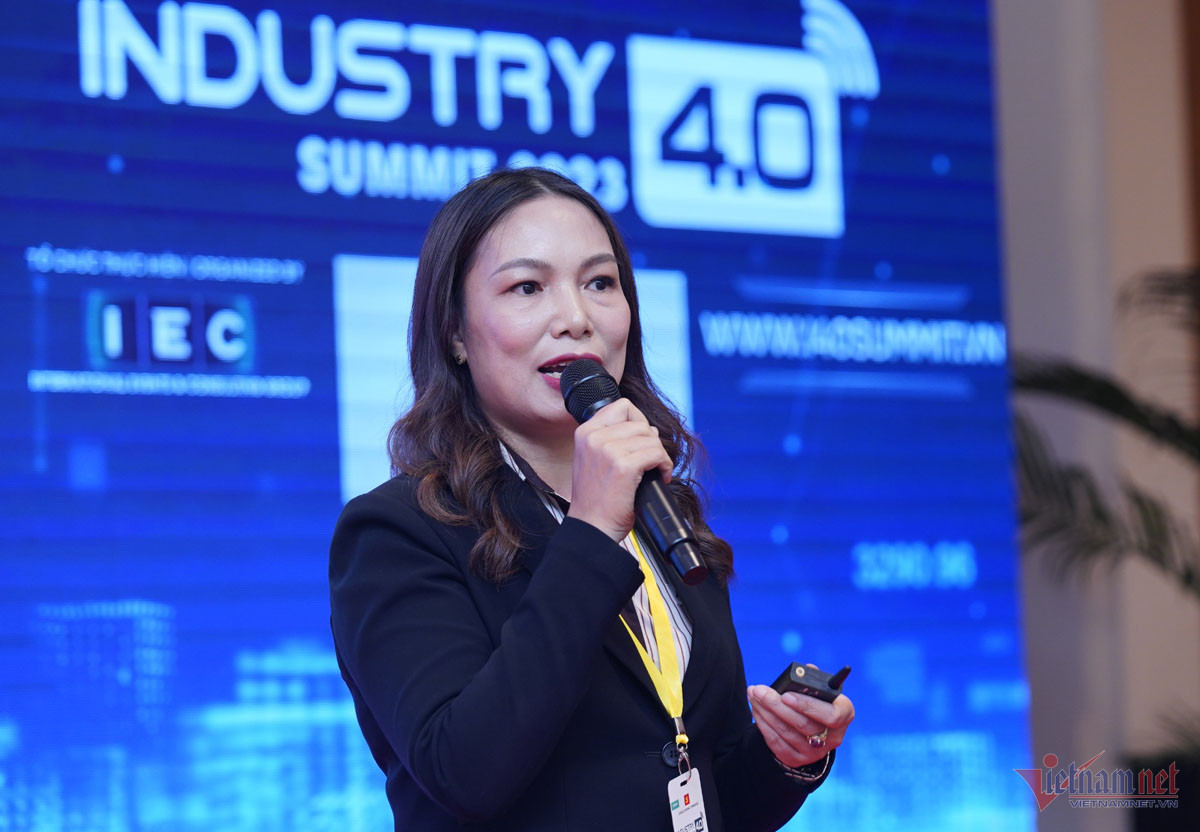
From the perspective of a business participating in the development of Make in Vietnam digital platforms to serve digital transformation, Ms. Dinh Thi Thuy, General Director of MISA, commented that Vietnam has certain advantages in developing the digital technology industry. That is, human resources in the technology field are sensitive to new technology trends such as artificial intelligence, cloud computing, data science, etc. On the other hand, Make in Vietnam digital technology solutions are reasonably priced, designed to suit the characteristics of units, organizations and individuals in Vietnam, and are more optimized in performance than foreign software systems.
According to Ms. Dinh Thi Thuy, state-owned enterprises should focus on building digital platforms and infrastructure that private enterprises cannot do, creating a launching pad for people and private enterprises to develop. "Agencies, ministries, departments and branches need to focus on building policies, criteria and standards for privately developed software to improve the quality of Vietnamese technology products, contributing to the overall development of the country's IT" , the MISA representative suggested.
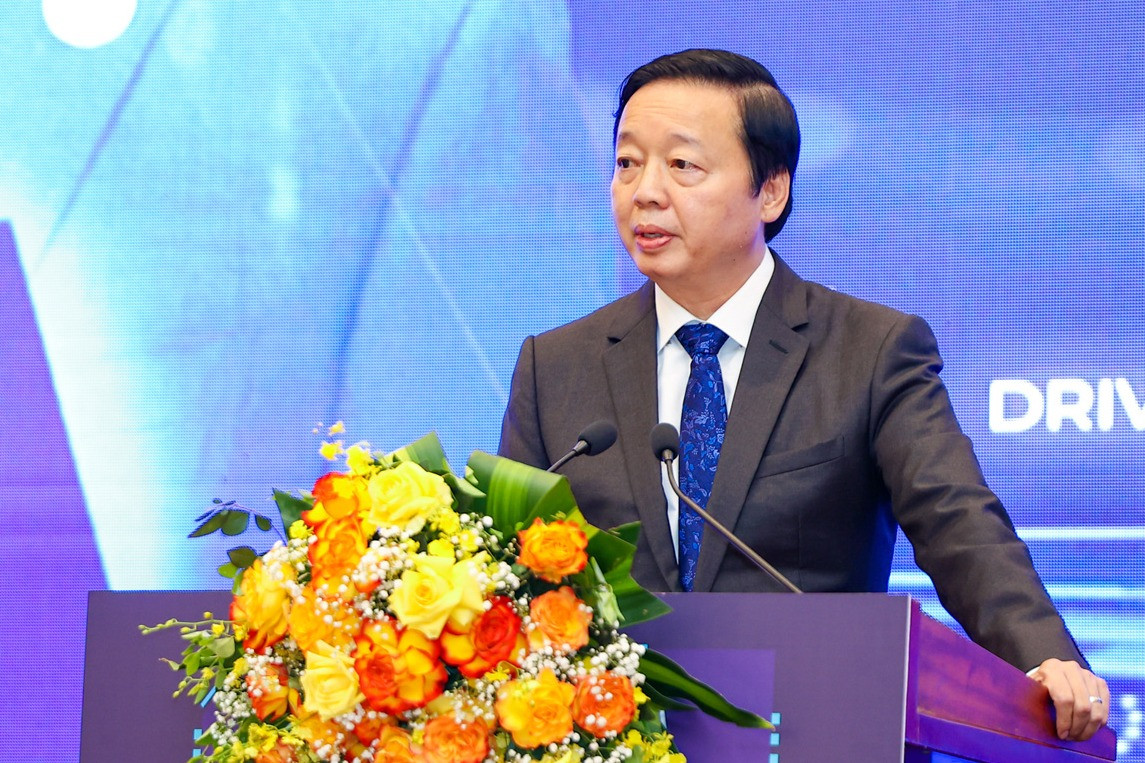
Source


![[Photo] General Secretary To Lam attends the conference to review 10 years of implementing Directive No. 05 of the Politburo and evaluate the results of implementing Regulation No. 09 of the Central Public Security Party Committee.](https://vphoto.vietnam.vn/thumb/1200x675/vietnam/resource/IMAGE/2025/5/19/2f44458c655a4403acd7929dbbfa5039)
![[Photo] Panorama of the Opening Ceremony of the 43rd Nhan Dan Newspaper National Table Tennis Championship](https://vphoto.vietnam.vn/thumb/1200x675/vietnam/resource/IMAGE/2025/5/19/5e22950340b941309280448198bcf1d9)
![[Photo] Close-up of Tang Long Bridge, Thu Duc City after repairing rutting](https://vphoto.vietnam.vn/thumb/1200x675/vietnam/resource/IMAGE/2025/5/19/086736d9d11f43198f5bd8d78df9bd41)

![[Photo] President Luong Cuong presents the 40-year Party membership badge to Chief of the Office of the President Le Khanh Hai](https://vphoto.vietnam.vn/thumb/1200x675/vietnam/resource/IMAGE/2025/5/19/a22bc55dd7bf4a2ab7e3958d32282c15)






























![[Photo] Prime Minister Pham Minh Chinh inspects the progress of the National Exhibition and Fair Center project](https://vphoto.vietnam.vn/thumb/1200x675/vietnam/resource/IMAGE/2025/5/19/35189ac8807140d897ad2b7d2583fbae)














































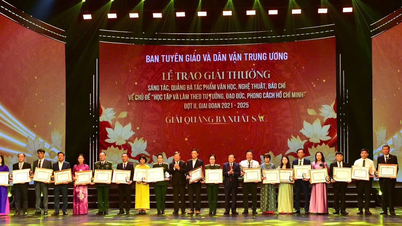







![[VIDEO] - Enhancing the value of Quang Nam OCOP products through trade connections](https://vphoto.vietnam.vn/thumb/402x226/vietnam/resource/IMAGE/2025/5/17/5be5b5fff1f14914986fad159097a677)



Comment (0)